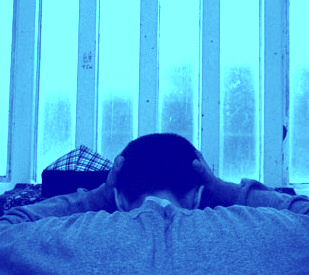Startling study as call for mental support
 A new survey suggests hundreds of thousands of Australian children and teenagers are experiencing serious mental health issues, but their parents are none the wiser.
A new survey suggests hundreds of thousands of Australian children and teenagers are experiencing serious mental health issues, but their parents are none the wiser.
Experts say the study should act as a wake-up call for parents and doctors to recognise when children are unwell, as well as indicating the dire need for more services to help young in their battles with anxiety and depression.
The survey found that up to one in 10 children, some as young as four, have mental health disorders, including widespread self-harm, anxiety and depression.
It has led to estimates that about 560,000 children experienced a mental health disorder in the past year.
One in 13 children aged from 12 to 17 reported seriously considering suicide, and 1 in 20 had even picked a place to do it.
The research was conducted by the Telethon Kids Institute at the University of Western Australia.
Researchers spoke to more than 6,300 families, but importantly had the children fill in a separate, secret survey.
It revealed surprising gaps in knowledge, such as that 4.7 per cent of parents indicated that their children had a major depressive disorder, while the children's survey put that figure at 7.7 per cent.
Associate Professor David Lawrence has told Fairfax Media reporters that the conditions identified in children had changed significantly since a similar survey in 1998.
Fewer children today reported having ADHD, but more had depression, and the research could not identify why.
Associate Professor Lawrence suggested that factors like changed environments for children could be contributors, combined with increased pressure for academic achievement and for university places and jobs, as well as the impacts of cyber-bullying.
Chris Tanti, chief executive of youth mental health group Headspace, says the size of the problem was evidence that more services were needed.
“We are talking about five or six hundred thousand children, and we are currently seeing 60,000 and when we scale up it will be 120,000, so we are just scratching the surface of this thing,” he said.
He said help for children aged under 12 was particularly lacking, as was training and support for parents to both recognise mental illness and know where to find help.
Mental Health Australia chief executive Frank Quinlan said that more research such as this must be undertaken, a new mental health plan should be implemented to combat the problem, and schools need more counsellors as well.
But he was encouraged by the finding that already, more children are seeking help.
“Maybe it means young people are more aware of mental health issues, and as a father … I would definitely say my children are much more aware of mental health issues than I was,” he said.







 Print
Print